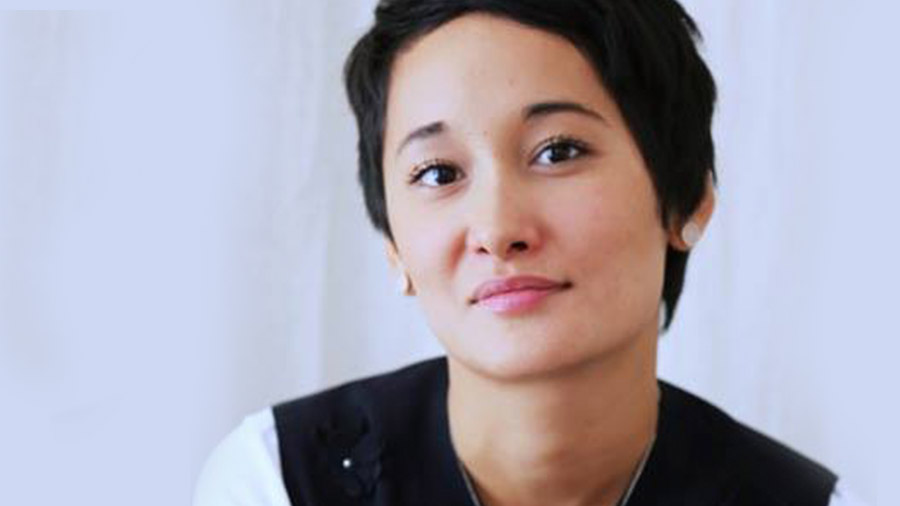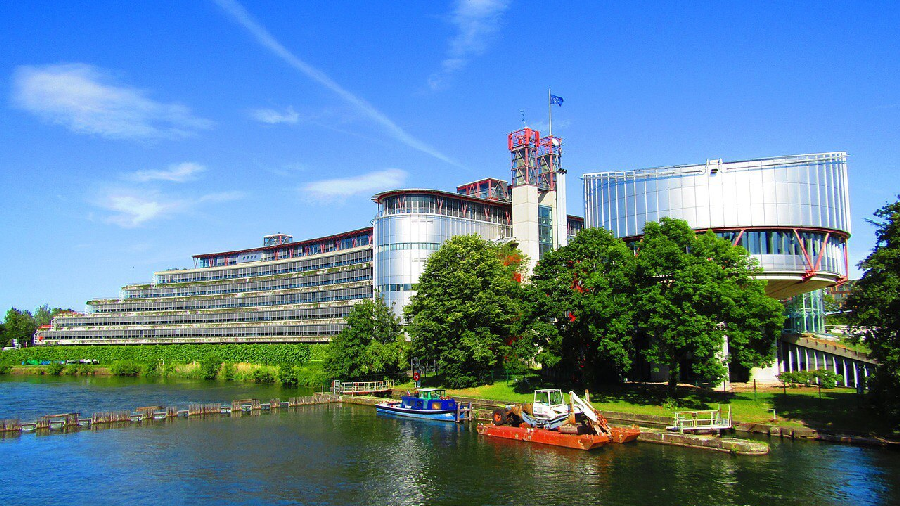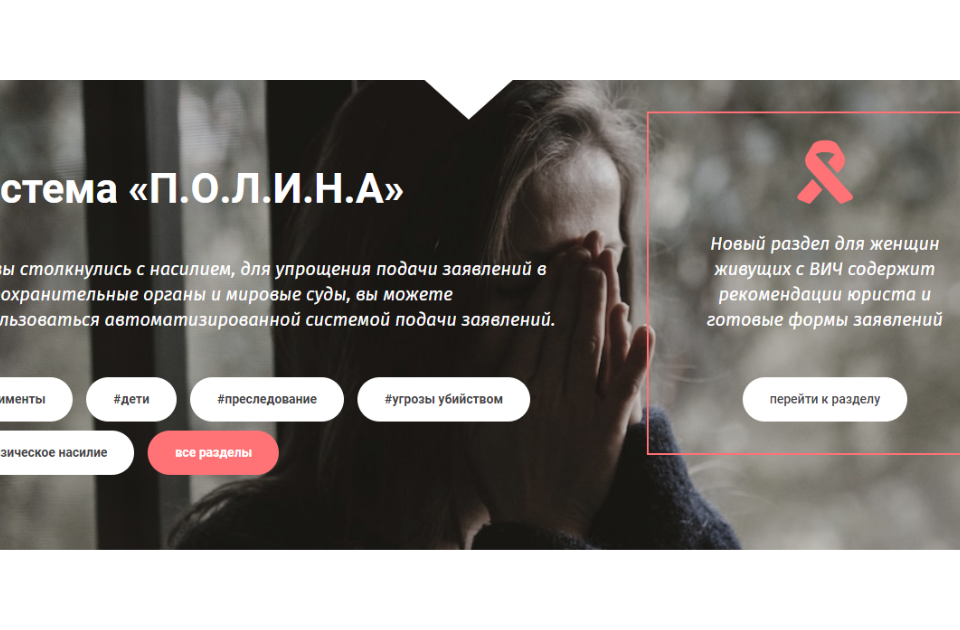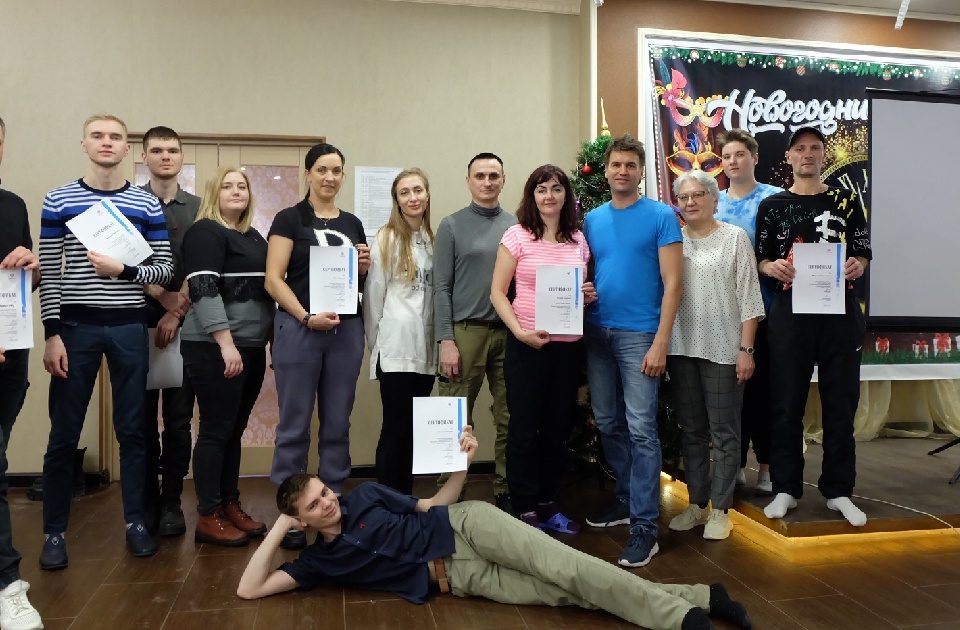Assistance to Refugees and Migrants in Legal Clinics of the Russian Federation
![]()
Interview with Elizaveta Choy, the chairwoman of the Sorbonne Legal Clinic in Paris (France)

Please tell us about your clinic. How and when did it all start?
To paraphrase Voltaire, if this story were untrue, it would have to be invented. It all started in 2015, when two entirely separate groups of students at the same time came to the conclusion that it was absolutely necessary to create a legal clinic at the University of Sorbonne. Having come together, they approached the administration of the Sorbonne Faculty of Law. However, at that time our project wasn’t actively supported by the university authorities, so the students had to act on their own initiative. As a result, the clinic now operates in the form of an independent student association. This is somewhat unusual for a legal clinic. Fortunately, this year the university’s position has changed and we now enjoy unlimited support from the Sorbonne Law School, whose teachers are now part of our academic council. During the next General Assembly we will also consider changing the name of our association to the "Sorbonne Legal Clinic".
Why has the university’s attitude towards the clinic changed since its establishment?
Today, following three years of the clinic’s existence, we have gradually begun to merge with the structure of the Sorbonne Law School. First of all, this happened because we did a good job over these years. The demand for the clinic’s services has been growing constantly among clients, students and our partners. For example, whilst we had about 150 students who volunteered for us last year, this year we already had more than 220 students by the end of the first semester. Last year we only had two specialized branches of the clinic; this year there are already ten of them. Secondly, nowadays legal clinics are considered by the authorities as a valid instrument in the system of public legal aid service.
As far as I understand, students do not receive academic credits for their participation in the clinic. Am I right?
Indeed, students do not receive credits for their work, but there is a special system of incentives common to all student associations registered in the Sorbonne. This means that clinic’s participants can be sure that they will receive the maximum amount of bonuses at the end of the academic year, which is adding half a point to the final note
Could you tell us how your clinic works precisely?
The basic format of the clinic's operation was developed right after its establishment: first, we are contacted through our website, then we edit the questions received in terms of legal terminology and pass them on to supervisors. The supervisors are the students who have already gained some experience in the clinic. Afterwards they choose the questions they are most interested in working on. Next, they recruit students to form a working group and offer a personal meeting to the potential client who has contacted us via the website. The average duration of work on one case is approximately three weeks.
Over time, other models of work have been developed. Nowadays, we conduct our own free legal consultations in several places, one such place being the Municipality of the fifth district of Paris. We also provide legal consultations in partnership with other associations, for example together with France Terre d'Asile.
What are the conditions for joining the clinic?
At the moment, the only mandatory condition for participation in the clinic is being a student of the Sorbonne Law School in at least the third year of one’s studies. Students who are interested need to pay a fee of 10 euros and sign an agreement with our association. We made a conscious choice not to select students for the admission in order to provide everyone with an equal opportunity to prove himself/herself.
Does your clinic have any specialization? Do you accept all the questions regardless of their theme?
The most important feature of our clinic is that we deal with a wide range of legal issues. Naturally, there are small difficulties associated with the legal framework of our activities. For instance, we are not allowed to consider cases related to a client’s representation in courts when criminal charges are in question. Apart from this, we accept all applications – from simple specific questions to whole research projects.
We are progressing very quickly; as of now, we already have 10 specialized departments. The very first of them was the department dealing with migrants’ rights, which I established last year. Since this particular department in the first year of work fulfilled 80% (16 completed cases and about two hundred hours of legal consultations) of the entire workload of the clinic, we decided to follow this direction and establish more branches that are specialised. The second branch in chronological terms is associated with labour law, after which came business law, family law, criminal law, and other departments.
Do you manage to cope with all the questions and applications that people send you? How many students are involved in the work of the clinic?
We do our best to cope with everything. At the moment, 232 students are full members of our association. 32 of these students hold an administrative post. There is a central apparatus and fairly autonomous directorates of “spiraling” branches. If we need more support, we recruit new students for the position of supervisors. Of course, the work in the clinic is very demanding and requires a lot of time from the students; that is why we hope that soon their work will be truly appreciated in both academic and professional circles.
And what about the other 200 students? Do they participate in the work of the clinic on a regular basis or rotate, depending on their availability?
The clinic is based on the volunteers’ involvement so there is no permanent working schedule. If a student decides to join us, he/she comes to our general meeting, where we explain how we work. Then the student pays the membership fee, signs the documents and thus becomes part of our clinic. From this moment on, he/she can attend special workshops with lawyers, judges and other experts in legal issues organized by the association.
In the first part of the workshop, they talk about a specific legal topic. For example, one of the last meetings was dedicated to the legal issues surrounding sexual harassment on the Internet. In the second part of the evening, we discuss all together the particular cases related to the given subject. The students are not obliged to attend these workshops, but each student has to attend at least two events before he/she can start working on the first case.
And then the work actually begins...
Yes, and here is how it works. The supervisor publishes details of a certain case in our closed working group on Facebook. This post is seen by all the students volunteering in the clinic and they choose both the case and the time by themselves. The first case for a new student in the clinic will be relatively simple. For beginners, we have a so-called “general department” where all simple cases are gathered. After successfully completing the assignment from this department, the student can choose to specialize on particular cases. But approximately 70% of our students choose to remain in the department "for beginners", as it gives them an opportunity to get acquainted with cases from different branches of law, which is incredibly valuable given the highly specialized system of legal education in France. It is important to mention that we do not force students to take on cases. Of the 232 members of the association, only 112 students have completed their first tasks.
Which year of studies are most of your students in?
As I’ve already mentioned, it is possible to join us starting from the third year. I know that there are different approaches regarding when is the best time to join a clinic, mostly due to the form that a particular clinic has. If the legal clinic is attached to the university, there can be two options: the university initiates the clinic as part of the Master’s second year program so only the students in the last year of studies can participate in it; or an engaged professor decides to devote a lot of time and efforts to the clinic, and then it is possible to begin working in the clinic from the first year already. In our clinic, we chose the golden mean. The majority of the volunteers are in their first year of MA studies; those students who hold administrative positions come from the second year of the MA program. We even have several PhD students.
Could you tell me a bit more about the supervisors?
Supervisors are students who have successfully completed their work on several legal cases and received recommendations from their own supervisors to apply for administrative positions. After a personal meeting, a decision is made regarding their final appointment to become supervisors. These people facilitate the work of a group of students on a particular case. They formulate the question, which was received via the Internet, in legal terms, then they post the case in our group on Facebook and afterwards recruit a team based on certain rules. The group should include one student from either the first or second year of the MA studies specializing in the particular field; one student without any specialization – for example a third-year student of LLB program; one who has some experience with legal cases; and, finally, one without any experience – a beginner. This way a team of four students is formed. With more abstract cases, the groups might have more members.
How do you ensure the quality of the legal consultation you provide to your clients?
We double-check all the cases before we issue the final result. How do we do it? We send all the written versions of our oral responses to either professors or lawyers working in this field, or to a notary if the issue in question has notarial nature, etc. We have a very large network of partners, and we are continuously working on expanding it further.
At the very beginning, you mentioned the financial contribution as one of the conditions for participation in the work of the clinic...
Yes, each member of the clinic pays 10 euros as an annual fee. This is our only permanent resource of funding.
It means that your average annual budget is between 2,000 and 2,500 euros. How do you spend this sum?
We pay for the website maintenance and other means of communication. Of course, our clinic is advertised in some magazines, but this is done for free. Under “other means of communication” I mean printing of businesscards and brochures for the forum, and other materials. These costs are not high – about 500 euros per year. We do not need to rent rooms or offices. For our evenings, the Sorbonne premises are provided free of charge. We have a large number of partners, and some legal consultations will take place in the municipality’s offices, for example, or in other associations. Sometimes we simply conduct working meetings with future participants of the clinic in cafes. All this means that we practically do not have any regular expenses. Our biggest constant expenditure is the weekly 5 euros we pay for a coffee for our translator in the department of migrants' rights.
Please, tell me more about your cooperation with other clinics.
We are part of an international network of francophone clinics. There is also a project that was initiated this year in Aix-en-Provence. They have a specialized clinic that works closely with one law firm. They want to create an "incubator of legal clinics". At the beginning of this year we met with them and decided that we would definitely become part of the managing body. In any case, we are ready to provide assistance to all the clinics that are being established in France, regardless of whether there is a general association or not. On the international level, unfortunately, we do not have many contacts yet.
You said that the initiative to set up a special department for providing legal aid to refugees and migrants arose last year. How did this happen?
During my second year of law studies, I did an internship in a law firm specializing in migrants’ rights. At that moment, I realized several things: firstly, this subject does not receive any attention at the university; secondly, this legal specialization is in very high demand, and lastly, the ability to speak a so-called "rare language" in Europe allows me to provide help to an even larger number of clients than the lawyer that I worked for. For these reasons, the idea of establishing an association that deals exclusively with this subject was born even before I had joined the clinic.
And what were your first steps?
When I decided to initiate this special department within our clinic, and the former president of the association gave me “green light”, the first thing I did was contacting all my colleagues in other associations, telling them that I was going to create a department specializing in legal consultation for migrants. As other associations found out about us, the number of cases involving migrants began to grow sharply. After all, a migrant does not always speak French and does not know where to get the information he/she needs. Therefore, the usual working model of the clinic, based on filling out the form on the website, was not very effective. In order to ease this process for foreigners, we decided to have special hours during which they could come and receive consultation from us. And that’s where we work closely with different associations that forward their clients to us. For instance, last year, in cooperation with France Terre d'Asile, we provided more than two hundred hours of consultations. So, as you can see, we work very intensively in this field.
Was the clinic able to help people with questions concerning migration issues before establishing this special department?
The clinic provided consultation on very wide range of legal questions, including migration law, but since the establishment of specialized departments, the quality of our legal aid has changed substantially.
What are the most frequent problems and questions your department needs to deal with?
If we are talking about receiving refugee status, then, for example, we are asked to file appeals following the first refusal or applying for a re-examination. Sometimes we receive questions regarding the process of acquiring citizenship. In this case, we provide basic initial consultations. In cases involving visa issues, we mostly help to prepare appeals when the clients don’t receive the requested visas.
Do you succeed to help in many cases? What are the main difficulties?
The most important difficulty is finding an interpreter. To solve this problem we have established many partnerships with different associations. Sometimes even our former clients offer translation services. The second major problem is related to the fact that working with migrants involves a lot of emotions, so it is difficult to limit our assistance to just providing legal consultation. Very often foreigners need to find French courses, solve housing problems, etc. Here, again, our extensive network of contacts with other associations helps a lot.
Some difficulties arise because of the lack of specialized education in this field. However, this drawback is compensated for by the fact that most of the students who come to volunteer in this particular department are very motivated by their political views and the feeling of solidarity with migrants, so they work much harder than in other departments. Overall, we have very good statistics.
Where do you see your clinic in five years’ time?
I hope that there will always be people who continue to maintain this important work and that one day a full merger with the university will take place, while, at the same time, this process will not require giving up on our fundamental values and principles. For the time being, I'm very much in favor of the current model of the clinic, based on the student association, as it helps the project develop more naturally, without official directives and with a higher feeling of social justice. Actually, I wish the same to all other similar projects. I often talk with students from other universities who would like to establish a clinic at their institutions and understand how trendy legal education is in France nowadays.


